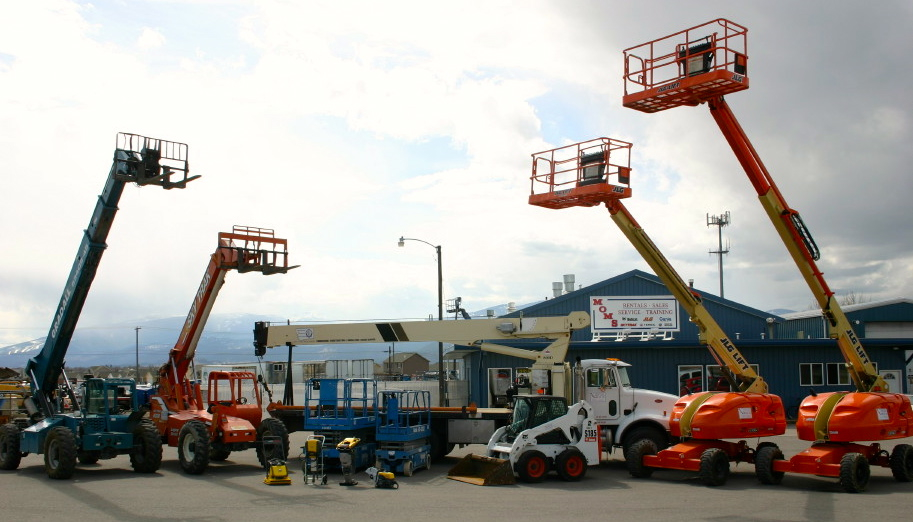Dozer Rental: Powerful Earthmoving Equipment for Your Construction Requirements
Dozer Rental: Powerful Earthmoving Equipment for Your Construction Requirements
Blog Article
Optimize Your Budget by Comprehending the Prices Related To Building Devices Leasings
Understanding the full scope of prices related to construction devices services is important for maximizing your spending plan. While the initial rental cost might seem straightforward, countless additional expenses-- such as transportation, gas additional charges, and maintenance-- can quickly collect, influencing your monetary preparation. Moreover, being conscious of different costs and the ins and outs of rental arrangements can aid prevent unexpected monetary worries. What approaches can be employed to effectively manage these expenses and ensure a much more reliable rental experience?
Review of Rental Prices
When thinking about construction devices rentals, recognizing the linked expenses is paramount for reliable budgeting and job planning. Rental expenses can vary dramatically based on numerous aspects, including devices kind, duration of rental, and area. The initial rental cost usually mirrors the equipment's market need and its associated operational capacities, influencing the general expense.
In enhancement to the base rental rate, ancillary prices might emerge, such as transportation costs, fuel surcharges, and upkeep fees. It is necessary to make up these additional expenditures to properly examine the overall expense of leasing tools. Additionally, the rental period can impact prices; longer rentals may receive reduced rates, while temporary leasings might sustain greater daily charges.

Failure of Rental Rates
A thorough understanding of rental rates is crucial for service providers and project supervisors aiming to optimize their spending plans. Rental rates for building and construction tools generally include numerous components, including base prices, time-based charges, and usage fees.
Base prices are the core fees associated with the service of the tools, commonly determined by the kind and dimension of the equipment. These prices can vary considerably, affected by elements such as tools demand, accessibility, and regional market trends. Time-based charges, which may be daily, weekly, or monthly, serve to accommodate various task timelines and rental durations.
Additionally, rental rates may include use fees, which apply when devices is used past a specified threshold, making certain that the rental business can account for wear and tear. Seasonal need variations can additionally impact rental rates, with peak construction seasons commonly regulating greater rates.
In addition, recognizing the rental company's policies pertaining to maintenance and insurance can give further understanding right into the total expense framework. By analyzing these parts, professionals can make enlightened choices, making certain the selection of rental devices aligns with both job requirements and budget plan constraints.
Additional Costs to Take Into Consideration
Recognizing the intricacies of added costs is crucial for specialists to manage their total rental costs successfully. Past the typical rental rates, different extra charges can substantially impact the overall price of equipment rental. These costs usually consist of distribution and pickup fees, which can vary based upon range and logistics associated with carrying the tools to and from the work website.
Furthermore, some rental business might enforce fuel additional charges if the equipment is returned with much less fuel than when rented out. It is likewise necessary to be conscious of potential cleansing fees, specifically for specific devices that calls for detailed maintenance after use.

Extensively evaluating the rental contract and clearing up these extra costs upfront can assist service providers prevent unanticipated costs and guarantee that spending plans stay undamaged throughout the task lifecycle.
Repair And Maintenance Expenditures
Regular maintenance and repair work expenditures are usually overlooked elements that can significantly affect digger loader the overall price of building and construction equipment rentals. When renting out devices, it is vital to consider not only the rental fees yet additionally the possible expenses related to keeping the machinery in optimal operating condition.
Many rental business consist of standard upkeep as component of the rental contract; nonetheless, extra unanticipated malfunctions or substantial repair work can result in additional expenditures. It's necessary to review the rental contract thoroughly to comprehend what maintenance services are covered and what obligations drop on the tenant.
In addition, equipment that is not well-maintained can cause inadequacies on duty site, possibly triggering delays and enhancing task expenses. To minimize these risks, it is a good idea to conduct routine inspections and maintain open interaction with the rental copyright relating to any problems that arise during use.
Insurance Policy and Liability Expenses
Insurance and obligation costs are essential components that can dramatically influence the general expense of building tools services (forklift rental). These costs make sure that both the rental business and the customer are safeguarded from possible monetary losses occurring from mishaps, damage, or burglary during the rental duration

Additionally, clients ought to be aware of any kind of deductibles or exemptions in the insurance plan, as these can impact potential out-of-pocket costs. Comprehending the conditions of any kind of insurance protection is important to prevent unanticipated expenses. Ultimately, budgeting for insurance coverage and obligation costs can help make certain a smoother rental experience and safeguard against financial threats related to building and construction projects.
Conclusion
In verdict, an extensive understanding of the prices connected with construction equipment leasings is crucial for efficient budget monitoring. Inevitably, notified decision-making concerning tools rentals contributes to the overall success of building ventures.
Rental costs can differ significantly based on a number of factors, including devices type, duration of rental, and location (heavy equipment rental). The rental period can affect prices; longer services might certify for reduced rates, while temporary leasings could sustain higher daily charges
By carrying out thorough study and involving with trusted rental business, professionals can effectively navigate the complexities of rental pricing, eventually maximizing their economic sources.
Past the conventional rental prices, different auxiliary charges can considerably influence the total price of devices leasing. Rental companies typically supply responsibility insurance that covers injuries to third events or damages to residential property, while equipment damage insurance coverage can cover the price of repair services or substitute if the rented devices is damaged.
Report this page